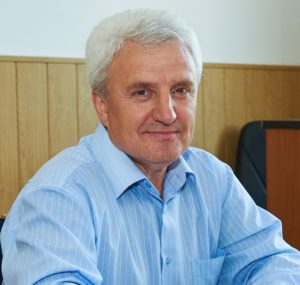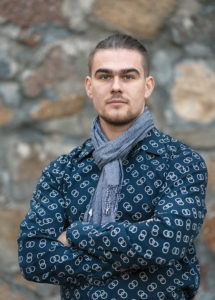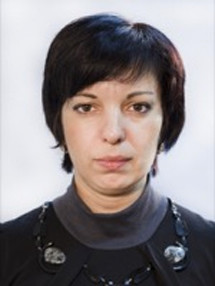Research grants 2018
The HREC Research Grants Competition is held annually to support academic research on the Holodomor, the publication of research results, the preservation of materials, and the organization of and participation in academic venues. Each year, a new thematic focus is established, though proposals for other topics are considered. The applications are reviewed by a committee of scholars and HREC associates.
-
2018 HREC Research Grants Competition
The Holodomor Research and Education Consortium awarded a total of $33,500 (CAD) in grants, ranging from $980 to $6000, through its 2018 Research Grants Competition.
The focus of this year’s competition was on projects that focus on research and publishing of research results, preservation of materials, and organization of and participation in Holodomor-related conference sessions and workshops. For the second time, HREC considered proposals for collaborative projects involving two or more individuals and/or institutions, and in particular, projects that engage institutions and individuals both in and outside Ukraine.
Individual Projects 2018
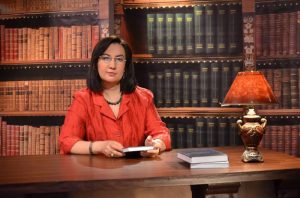
Gulnara Bekirova
Deputy Director of the Special Commission of the Kurultai for the Study of the Genocide of the Crimean Tatar People
“Deportations and hunger: Crimean Tatar (post)memory and the shared fate of Ukrainians and Crimean Tatars under the Stalinist system.”
Many historical parallels exist between Ukrainian and Crimean Tatar experiences under Soviet
rule, including deportation and mass starvation. Oral histories of Crimean Tatars who lived
through the famine of 1921-22, the Holodomor of 1932-33, and the deportation of 1944 reveal
that witnesses perceived a direct association between these events and Stalinist policies. This
grant supports the continuation of a project to analyze how memories of deportation and
starvation have been preserved and transmitted across generations of Crimean Tatars.

Olga Bertelsen
Postdoctoral Fellow, Columbia University in the City of New York
“Cannibalism at Sites of Mass Starvation in Ukraine in 1932-1933.”
The research examines in what ways prolonged food deprivation shapes people’s behavior and
analyzes a range of transgressions committed by starving individuals during the Holodomor,
illuminating problems of ethics, morality, and personal choice that occurred in spaces of
violence and extreme starvation.
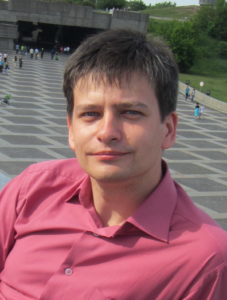
Mykola Horokh
Tarnovsky Chernihiv Oblast Historical Museum
Researching Archival Documents of the Vinnytsia Regional "Torgsin” Branch
The Ukrainian SSR had an expansive network of “Torgsin” stores, where during the Holodomor, starving peasants and urbanites surrendered their valuables to the state in exchange for a chance at survival in the form of bags of flour, for example. This project examines archives of the Vinnytsia Regional “Torgsin” Office (perhaps the most complete in comparison to others), the documents of which were previously marked "classified" or "top secret."
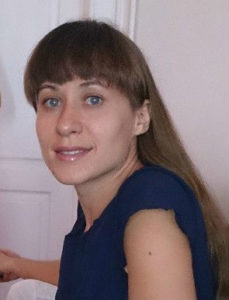
Yulija Hryshchenko
Graduate Student, NASU Institute of the History of Ukraine
“Bulgarians in the Ukrainian SSR during collectivization and the Holodomor”
The Bulgarian peasants of the Ukrainian SSR had higher land security and were more commercially successful than the average Ukrainian peasant household. This study examines how collectivization, several waves of dispossession and a series of repressions destroyed the economic basis for preserving the national identity of the Bulgarian ethnic minority, undermined their traditional economic activities, and altered the social structure of the Bulgarian population.
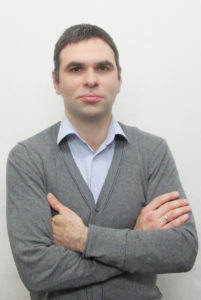
Artem Kharchenko
‘Kharkiv Polytechnic Institute’ National Technical University
“Forcible Transfers of Children during the Holodomor (1928-35)”
Taking as a theoretical framework the ideas of Raphael Lemkin and applying Intersectionality Theory, this study examines Soviet policy regarding orphans as an element of the Holodomor (1928-35). Inmates of orphanages were subject to different levels of oppression – age, social, cultural, and national. The research will present collective portraits of representatives of the orphanage system and their staffs as ordinary perpetrators of a totalitarian system.
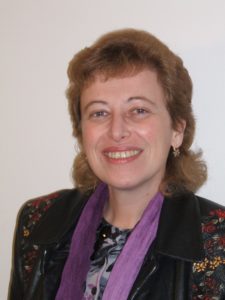
Victoria Khiterer
Millersville University
“The Holodomor and Jews in Ukraine”
This project will produce an article on the experience of Jews during the Holodomor and the effect of the Famine on Jewish-gentile relations. The article will explore how the brutality of the Holodomor and Stalin's other repressions paved the way for the Holocaust as people became inured to the suffering of others.
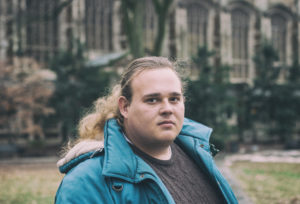
Martin Kisly
PhD Candidate, National University of “Kyiv-Mohyla Academy”
“Crimean Tatars’ memory of the Holodomor”
This project builds on oral histories with members of the Criman Tatar community conducted under a previous grant.
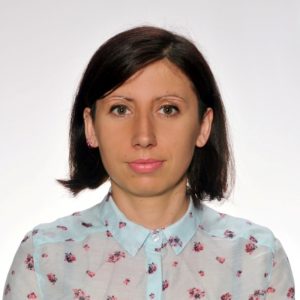
Karolina Koziura
PhD Candidate, New School for Social Research (New York)
"Gender and Violence in the Oral Testimonies of Holodomor, The Ukrainian Famine of 1932-33"
Through their embeddedness in family, neighbourhood, and communal life, women are often responsible for securing food for their families, yet their voices and experiences are frequently neglected in both famine historiographies and in more contemporary famine prevention programs. This project seeks to problematize the gendered impact of famine through the analysis of oral testimonies and the role of gender in conceptualizing memory and famine.
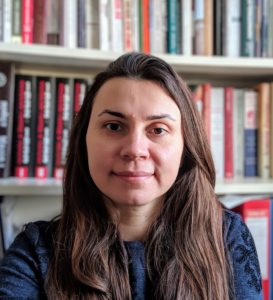
Daria Mattingly
PhD Candidate, University of Cambridge
Roundtable at ASEEES Convention: “Heroes and Villains: Performers of Mass Violence in Ukraine, 1918-1945" (December 2018)
The funding supports the holding of the roundtable 'Heroes and Villains: Performers of Mass Violence in Ukraine, 1918-45' at the convention of the Association for Slavic, East European, and Eurasian Studies (ASEEES, December 6-9, 2018) with panelists David Marples, Georgiy Kasianov and Yurii Radchenko discussing the perpetrators of the Holodomor and the Holocaust and their interpretation in memory and various narratives.
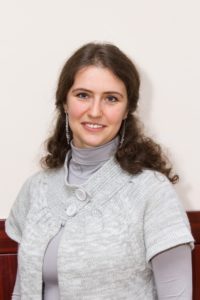
Iryna Reva
Institute for Social Research (Dnipro)
“Holodomor, Repressions, and Motivational Changes among Servicemen in the Red Army (1930-41) and the Armed Forces of Ukraine (2014-18)”
This project compares the impact of the current Russian-Ukrainian war on the motivation of Ukrainian servicemen whose ancestors lived through Stalinist repressions, with values and motivational reorientation of the Ukrainian Red Army servicemen in 1930-41, who witnessed the Holodomor in the 1930s. The study examines audio testimonies of the servicemen who fought in the Russian-Ukrainian war for a comparative study that may have implications for rethinking Ukraine’s past.
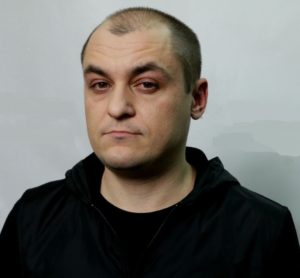
Vitalii Ogiienko
National University of "Kyiv-Mohyla Academy" and Ukrainian Institute of National Memory
“The Holodomor as a Historical Trauma”
The research looks to conceptualise the traumatic memory of the Holodomor in terms of post-traumatic stress disorder and collective trauma, comparing symptoms and markers of traumatic memory in Holodomor narratives, including memoirs, journalistic articles, fiction, and folklore. The research investigates how original traumatic experience passes down through generations, becoming cultural phenomena.
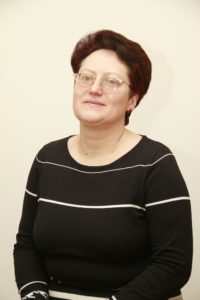
Olha Vasylenko
Glière Institute of Music (Kyiv)
“The Holodomor in the Works of Ukrainian Composers”
Utilizing analytical and comparative methodologies of musicology and culture, the research focuses on musical works of contemporary composers that address the Holodomor, including operas, cantatas, oratorios, and symphonies. The study assesses dramaturgy of these works in the development of the musical arts in Ukraine, as well as genre and stylistic characteristics of contemporary musical works dedicated to the Holodomor.
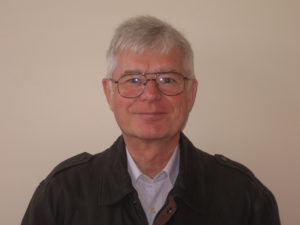
Oleh Wolowyna
University of Carolina at Chapel Hill
Organization of a conference at the University of North Carolina, Chapel Hill: "The 85th Anniversary of the Holodomor: New Interdisciplinary Approaches" (October 2018)
The grant supports organization of a conference in commemoration of the 85th anniversary of the Holodomor held at the Center for Slavic, Eurasian and East European Studies at the University of North Carolina (Chapel Hill). The conference is intended to explore interdisciplinary research within the context of other man-made famines as part of the University’s “Spotlight on Ukraine Initiative” to develop Ukrainian studies at the university.
Collaborative Projects 2018
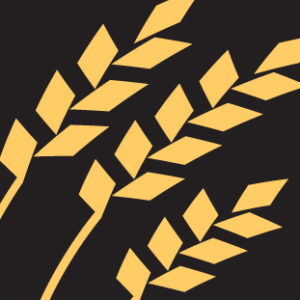
Serhii Plokhy
Harvard University
Konstiantyn Bondarenko
Harvard University
Oleksandr Gladun
NASU Ptoukha Institute of Demography and Social Studies
Natalia Kulyk
NASU Ptoukha Institute of Demography and Social Studies
Nataliia Levchuk
NASU Ptoukha Institute of Demography and Social Studies
“The Holodomor in Ukraine: regional peculiarities of population losses by gender and age in 1932-1934.”
This project assesses Holodomor population losses in Ukraine based on demographic statistics for 1926–39, contributing to a series of thematic maps for the Holodomor Atlas (part of the GIS project "Mapa. Digital Atlas of Ukraine"). The objectives include assessment of intensity of losses by region; comparative analysis of the age profile of male and female losses in regional context; and differences in sex and type of settlement.
Oleksandr Lysenko
NASU Institute of the History of Ukraine, Department of the History of Ukraine during the Second World War
Oleksandr Maiyevsky
NASU Institute of the History of Ukraine, Department of the History of Ukraine during the Second World War
Tetiana Zabolotna
NASU Institute of the History of Ukraine, Department of the History of Ukraine during the Second World War
“The Holodomor in Ukraine as a focus of academic and journalistic study in the 1940s and 1950s.”
The project aims at a comprehensive analysis of publications about the Holodomor in the 1930s–50s to assess their influence on the formation of the historical memory of Ukrainians based on ego-documents, periodicals, publications by diaspora scholars and publicists, and representatives of Ukraine’s independence movement, as well as Nazi propaganda that sought to focus attention of those under the Nazi occupation on the crimes of Stalinism.
